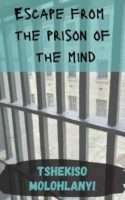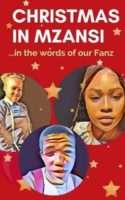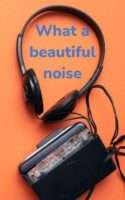Originally published: Laugh it off Annual 2003, page 82
Laugh it off caught up with Zolani Mahola (Freshly Ground) and Karen Zoid to get their take on the state of South African music …
LIO: What is the biggest challenge facing you in the South African music industry?
ZOID: Re-introducing people to the values of a live band. It’s cheap to wear fishnets to church … no more back tracks! People are warming up to the idea of a live band – you can’t beat it, man. There were 800 people at (the gig in) Welkom last night – those people experienced the music as we played it. It’s more ethical. Even manufactured artists like the Pick … Linda Perry from four Non-Blondes wrote her stuff, but at least she has a live band with her. All our accomplished musicians are producers, hiding away in studios. You hear them playing on CDs only. They should be on stage playing … like Keith Richards, The Edge. People in the platteland aren’t thick – the big corporate powers have completely the wrong idea. The world is smaller: everyone has a satellite dish and a modem. Not everyone in Welkom likes Patricia Lewis.
ZOLANI: Making yourself known without selling out. Success in the South African music industry means having big music label’s backing. Often that requires having to sell a part of yourself, and runningthe risk of not being truly represented as yourself. At the moment, we (Freshly Ground) are doing it all ourselves and finding it hard to get out there.
LIO: Where does the power balance lie in South African music?
ZOID: The power has shifted, completely. I update my own website. We plan where we want to go, and we organize our lives. It’s up to the artists – self-empowerment.
ZOLANI: Definitely with the radio stations and record labels, as the radio stations won’t play your songs unless you are backed by a label.
LIO: What about the quality of South African music?
ZOID: Someone does something great, and the next minute you have 25 Valiant Swarts. Too many bands trying to sound like Idols, Coldplay and Sugardrive. Oppikoppi opened my eyes though … Tumi & the Volume were so progressive. It was great to see so many people jumping up and down.
ZOLANI: I think it’s really good but the problem comes with reproducing it … unless you have big record label behind you, that “live” sound doesn’t translate well onto a recording. Our music is good, but if we had more money it would sound phatter.
LIO: Do you ever have to cater to the market?
ZOID: I’m an entertainer firstly. I will die if I am not a performer, so I will give the people what they want. And usually that is what I want too … The thing I like makes me, I never write anything that isn’t me, something that I don’t feel.
ZOLANI: As much as you want to make your own music that you identify with, you can’t write in isolation and paint a pretty picture that no one understands.
LIO: How can South African music remain relevant and unique in the context of a domineering global Western hegemony?
ZOID: It needs to be honest. For any writer – be it music song or journalism. Draw on your own experience. Write with integrity. I want to be able to look back on something that I wrote ten years ago and be proud of it.
ZOLANI: With Freshly Ground our music is relevant to our country as the lyrics are in Xhosa, the musical output is African – themed , and it reflects what we listen to (Oliver Mtukudzi, Jonny Clegg, Brenda Fassie). We want to show the world something different, as there is so much of the same music in our globalised world. There is definitely a space opening up for ethnic music.
LIO: What would you change about South African music?
ZOID: I would force everyone who uses a backing track to sing a cappella.
ZOLANI: The mindset of radio stations in terms of playlisting music that is self-produced. The music industry has a responsibility to the public to offer a wide variety of music – not just that which is commercially viable.
This article has been reproduced with permission.




